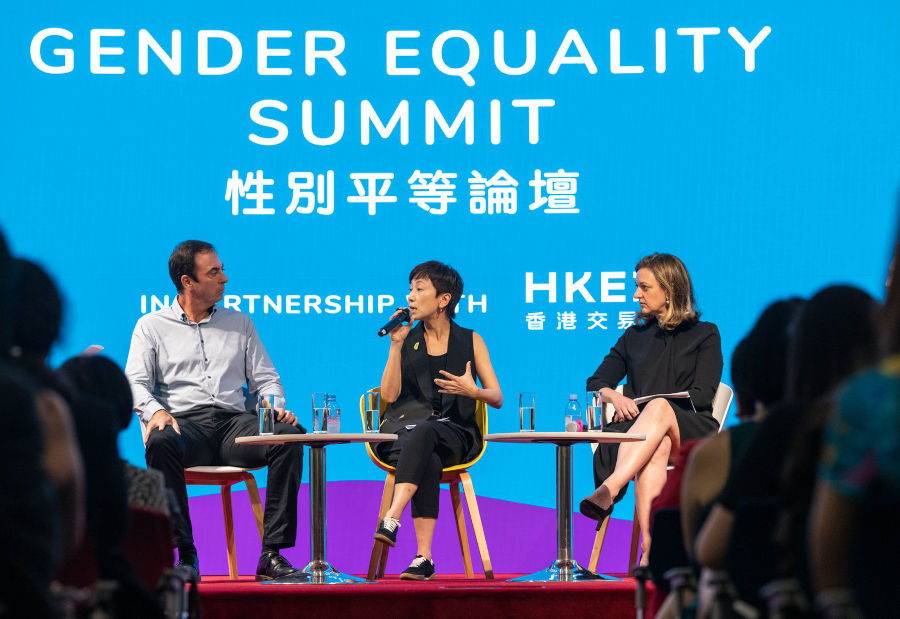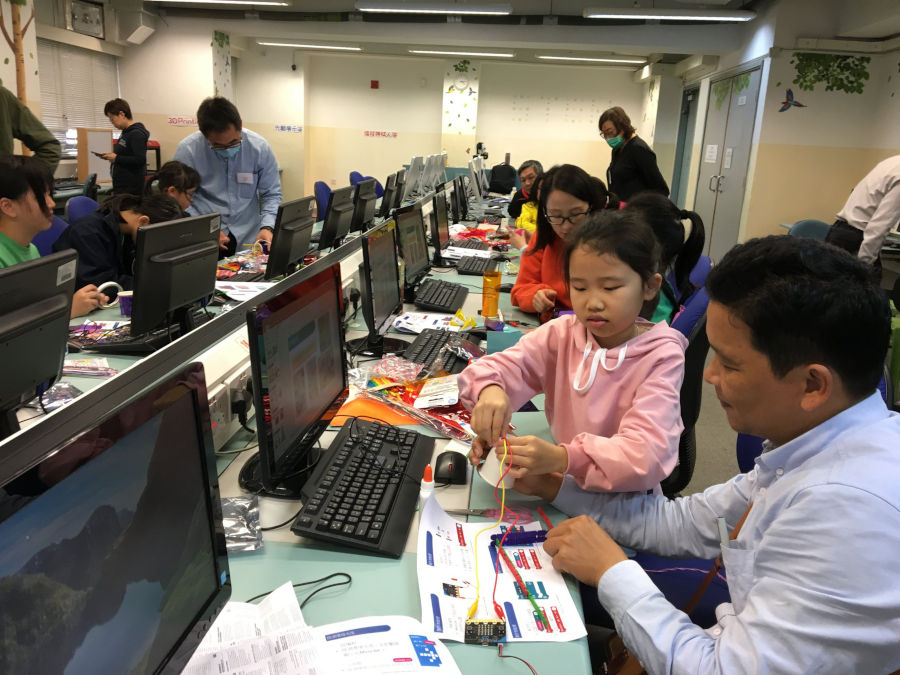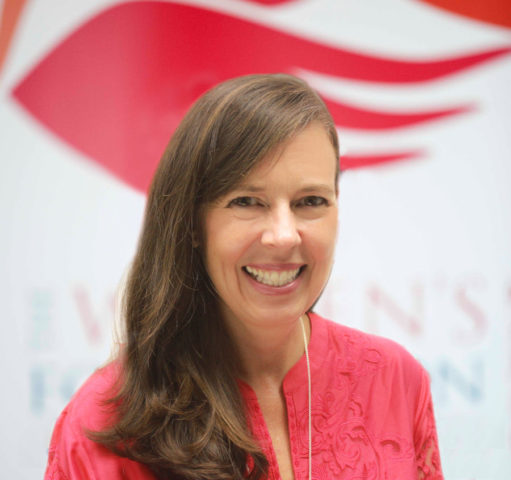This Women’s History Month and the week of International Women’s Day, The HK HUB is highlighting women entrepreneurs and daily heroes who are doing work that’s helping to build a compassionate, socially conscious society. However, no discussion about women and the roles they play should go without acknowledging the oppression that women at different intersections of vulnerability face.
We spoke to Fiona Nott, CEO of The Women’s Foundation Hong Kong, which works to equip young girls and underprivileged women with the tools to become leaders, about the gender biases that affect women in the workplace and what a gender equal society looks like.
#1 – What are the main gender biases surrounding women in Hong Kong?
Surprisingly, for a global city, Hong Kong is lagging behind on gender equality. Our female workforce participation rate at 53.6% is lower than regional neighbours such as Singapore and Australia, which have over 60% participation; women earn 15% less than men on average, and women comprise a mere 14.3% of Hang Seng Index-listed company directors. Biases are a significant factor contributing to these issues.
From a young age, stereotypes contribute to body image and self-esteem issues among girls as well as deter girls from studying certain subjects, which is why boys are 4 times more likely to enter into critical STEM-related degrees.
#2 – How do these biases inhibit women in the workplace?
Stereotypes still hold women back at work including negatively affecting performance reviews, salary negotiations, networking and appointments to boards. Particularly of concern, working mothers experience negative bias from employers, with an Equal Opportunities Commission study revealing more than 50% of employers would not hire women with children.
Older women face stigma at work for going through natural phases of life such as menopause. While we don’t know what impact that has in Hong Kong, results from a UK survey suggest one in four women consider dropping out of the workforce because of menopausal symptoms. At home, women face familial pressure to take up the majority of childcare, eldercare and household duties, which contributes to one-third of women dropping out of the workforce. These biases all contribute to women and girls not being able to fully thrive in society.
#3 – Why is it important to engage men in the work of achieving gender equality? What does this look like?

Men comprise the majority representatives of boardrooms, c-suites and senior roles across the city. Without the avid support of men, who generally make up the most influential and powerful stakeholder group across sectors, significant progress toward ending gender inequality is unlikely. In the workplace, this support includes men championing the merits of gender equality and role modelling the uptake of parental and flexible leave. At home it can mean equal sharing of household and caregiving responsibilities.
This does not mean women, other genders, or those who don’t identify with any gender, do not play a critical role in closing the gender gap. Instead, working with men as champions of gender equality helps to contribute to the ecosystem of individuals who feel equipped, knowledgeable, and ready to take action to create a more inclusive workplace, home, and city.
#4 – What does a society with gender equality look like?
Gender equality benefits everyone. A gender equal society where everyone has access to the same tools, resources and opportunities looks a lot brighter. Happier families. A thriving economy. More innovative and satisfying workplaces. A society without gender-based violence or harassment in real-life and virtual spaces. Children and adults who don’t feel influenced or constrained by their gender to dress, speak, or act in a specific way or to make decisions about their present or future based on gender.
#5 – How has the pandemic affected women and girls in Hong Kong?
For all of us, COVID-19 has upended nearly every aspect of our daily lives from our basic necessities and social interactions to education, jobs and the economy. We have all had to unexpectedly adjust and adapt to new ways of working – most of us remotely, some of us for the first time – all while managing the fear and general malaise that accompanies the pandemic.
However, there are some aspects of the pandemic which have disproportionately impacted women. They have taken up the majority of primary carer responsibilities, looking after children or elderly family members, without the usual support from schools or care centres in addition to doing household chores.
Some groups of women are particularly vulnerable: migrant domestic workers, ethnic minorities and underprivileged single parents, to name a few. We have also seen a spotlight on pervasive issues disproportionately affecting women like the digital divide and sexual and domestic violence.

We all need to support our most marginalised groups at this critical time. This is why The Women’s Foundation launched an initiative to provide Rapid Antigen Tests to underprivileged women and their families to alleviate their financial burden and provide peace of mind; it’s also why we have a #TEENForGood Initiative to support the learning needs of unprivileged students at risk of falling behind academically due to the pandemic and are launching a series for underprivileged women to equip them with tools to improve their mental health and well-being.
#6 – How can gender equality be improved in Hong Kong?
Achieving gender equality depends as much on the small everyday actions of individuals as it does on the larger structural changes. We can each start with small changes: expose children to diverse role models; debunk gender stereotypes in TV shows, movies and ads to the people around you; evenly divide childcare, eldercare and household responsibilities. At work, challenge policies and initiatives that may be disadvantageous to one gender and promote an inclusive working culture. In public or on the internet, stand up against harassment and discrimination. We can all contribute to making Hong Kong a gender equal city.

Fiona Nott joined The Women’s Foundation as CEO in 2017, combining her senior leadership experience with a commitment to TWF’s mission to serve marginalised women and girls in Hong Kong. A former lawyer, Fiona has lived in Hong Kong for over two decades having cultivated a career as a legal professional and adviser to a number of leading corporations including PCCW, AIA, and Aviva. In 2021, the AmCham Women of Influence Awards 2021 recognized Fiona as Non-Profit Leader of the Year for her work advancing gender equality.
Disclaimer: The opinions expressed in this publication are those of the authors and do not necessarily represent the views of The HK HUB.
Header image credits: davidf via Canva


